Massachusetts solar panels guide 2023
Updated August 26, 2022Massachusetts is one of the best places in the nation to install solar panels. With a combination of expensive utility rates, the solar tax credit, and the new SMART program, homeowners can get an excellent return on investment by installing residential solar panels in The Bay State
Although Massachusetts has fewer daily sun hours compared to other parts of the country, the state’s high utility power costs make solar a great investment for the home.
On this page:
Solar power prices, savings and payback in your part of Massachusetts
The average cost for an installed residential solar system in Massachusetts is currently $12,067 after claiming the 30% federal solar tax credit. This is $2.87 per watt. However, there is some variance in solar prices in different parts of the state. The graph below shows the average cost of installed solar systems in your part of the state.
Showing data for:
Prices based on a 6.2kW system, after 30% federal tax credit
Net profit (savings less system cost)
$68,073-$83,201
Payback period
3-3.7 years
Recommended size for the selected utility bill
6.2kW
Solar panel cost calculator
Cash flow graph based on cash purchase of a 6.2kW system
Are solar panels worth it in Massachusetts
Solar panels have fallen in price by more than 80% in the last ten years. In 2022 they also remain subsidized by the 30% federal tax credit and the net metering law, making them an excellent investment. They offer a return well above the long term average return from both the share market and also property investment.
Another way to look at this question is the levelized amount you will pay for each kWh of power you will use over the next 25 years with and without solar panels. As you can see below the savings are significant.
Levelized cost of solar energy
?
Levelized cost per kWh is the cost of the solar system divided by the total number of kWh produced by a solar system over it’s lifetime
7¢ /kWh
If you don't get solar
55¢ /kWh
(forecast avg Massachusetts electric rates over the next 25 years)
MA solar panel cost calculator
Massachusetts solar incentives & tax credits
Federal solar tax credit
The most significant incentive to install solar panels for homes and businesses in Massachusetts is the federal solar tax credit. The solar tax credit is equal to 30% of the total costs to install a solar panel system. So, if the installation cost $20,000, you could deduct $6,000 from your federal income taxes. Solar batteries can also qualify for the tax credit, even if they aren't connected to solar panels!
The tax credit is equal to 30% until the end of 2032. After that, it falls to 26% in 2033, and 22% in 2034. In 2035, the solar tax credit expires for residential solar installations.
Massachusetts state tax credit
Massachusetts offers a state solar tax credit. This means you can earn an extra $1,000 to put towards your taxes - on top of the federal solar tax credit.
Net metering
Net Metering requires your utility to monitor how much energy your solar power system produces and how much energy you actually consume, and make sure you get credit for the surplus.
Massachusetts has recently reaffirmed its commitment to net metering for residential solar systems, so you can rest easier knowing the state has your back.
For Massachusetts residents under Class I residential net metering rules for solar, any extra energy your panels produce is credited to your bill and carried over indefinitely.
Net metering in Massachusetts is a huge benefit for you as a solar owner, and a strong policy we’d like to see enacted across the rest of the country.
Solar Massachusetts Renewable Target (SMART) program
In 2018, Massachusetts replaced the state’s solar renewable energy credit (REC) program with the SMART program. Through the program, your utility pays you a flat base rate per kilowatt-hour of solar electricity your system produces for 10 years.
In return, your utility retains ownership of all RECs your solar system produces. The base rate you receive depends on your utility and when you apply to the program. The sooner you apply, the higher the base rate you will qualify for.
At the current level (2020), people who install solar on their homes are eligible for a net incentive payment of about $.102/kWh for 10 years. Considering the average Massachusetts home solar system generates around 7,900 kWh per year, that's over $800 in incentive payments per year.
Massachusetts property tax exemption
Normally, installing a solar system on a property would increase property taxes. However, thanks to the Renewable Energy Tax Exemption, 100% of the assessed value of a solar system is excluded from property taxes. This has the potential to save you a lot of money!
Massachusetts sales tax exemption
Massachusetts also offers a sales tax exemption for solar energy equipment. This means the state sales and use tax will not be added onto purchases associated with solar photovoltaic systems.
Table 2: Available incentive programs
|
Eligibility: Federal incentive
Type: Personal Tax Credit
|
|
Eligibility: State incentive
Type: Rebate Program
|

Best unit price
$320.00 ($0.96 per watt)
Best system price
Installed 5.0kW system
$12,721.85
($2.53 p/w)
LG335N1K-V5 overview
Rated power
335 watts
Efficiency
19.6
Number of Cells
60
Cell type
Monocrystalline/N-type
Manufactured
KR
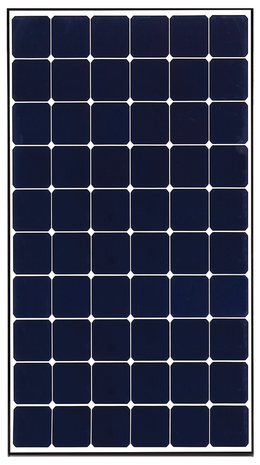
Best unit price
$562.50 ($1.50 per watt)
Best system price
Installed 4.9kW system
$12,120.18
($2.49 p/w)
LG375A1C-V5 overview
Rated power
375 watts
Efficiency
21.7
Number of Cells
60
Cell type
Monocrystalline/N-type
Manufactured
KR
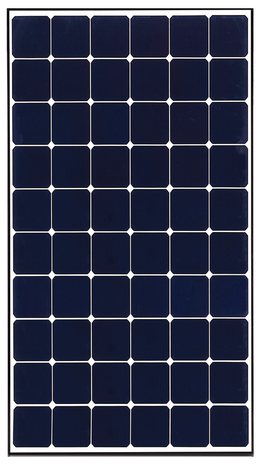
Best unit price
$430.00 ($1.15 per watt)
Best system price
Installed 4.9kW system
$12,919.30
($2.65 p/w)
LG375Q1C-V5 overview
Rated power
375 watts
Efficiency
21.7
Number of Cells
60
Cell type
Monocrystalline/N-type
Manufactured
KR
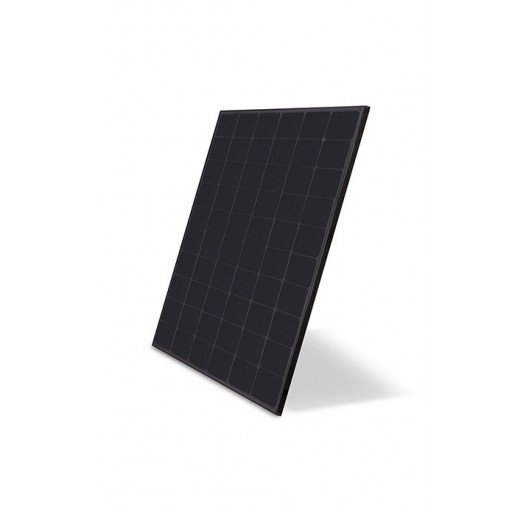
Best unit price
$473.34 ($1.30 per watt)
Best system price
Installed 5.1kW system
$13,231.07
($2.59 p/w)
LG365Q1K-V5 overview
Rated power
365 watts
Efficiency
21.1
Number of Cells
60
Cell type
Monocrystalline/N-type
Manufactured
KR
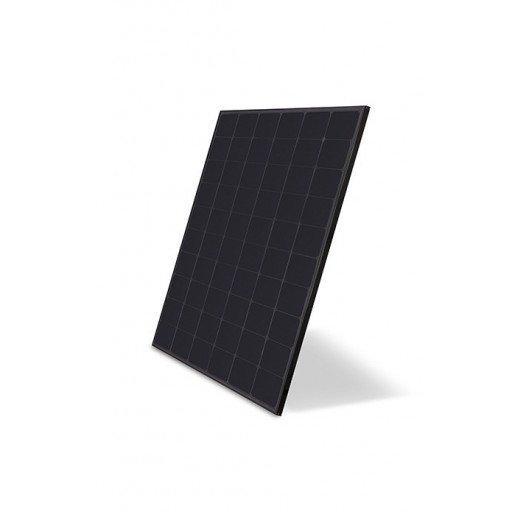
Best unit price
$432.00 ($1.20 per watt)
Best system price
Installed 5.0kW system
$13,276.66
($2.63 p/w)
LG360Q1K-V5 overview
Rated power
360 watts
Efficiency
20.8
Number of Cells
60
Cell type
Monocrystalline/N-type
Manufactured
US
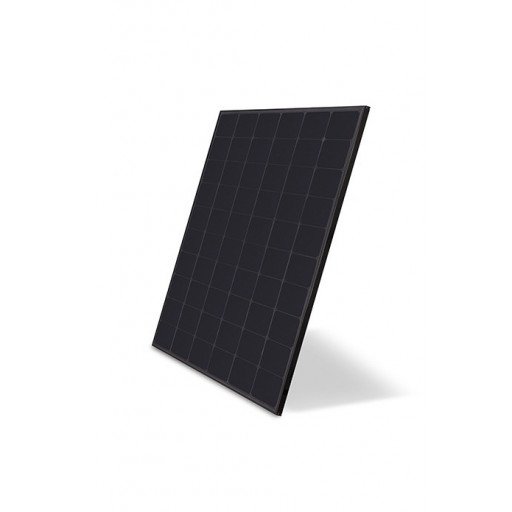
Best unit price
$530.85 ($1.50 per watt)
Best system price
Installed 5.0kW system
$12,386.87
($2.49 p/w)
LG355Q1K-V5 overview
Rated power
355 watts
Efficiency
20.6
Number of Cells
60
Cell type
Monocrystalline/N-type
Manufactured
US
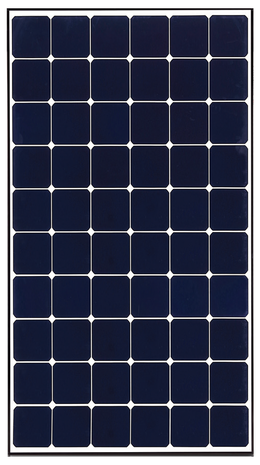
Best unit price
$495.00 ($1.38 per watt)
Best system price
Installed 5.0kW system
$13,091.06
($2.60 p/w)
LG360Q1C-V5 overview
Rated power
360 watts
Efficiency
20.8
Number of Cells
60
Cell type
Monocrystalline/N-type
Manufactured
US
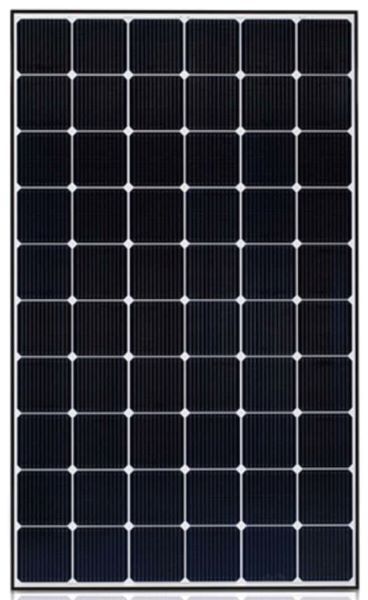
Best unit price
$407.97 ($1.10 per watt)
Best system price
Installed 5.2kW system
$13,159.30
($2.54 p/w)
LG370Q1C-V5 overview
Rated power
370 watts
Efficiency
21.4
Number of Cells
60
Cell type
Monocrystalline/N-type
Manufactured
US
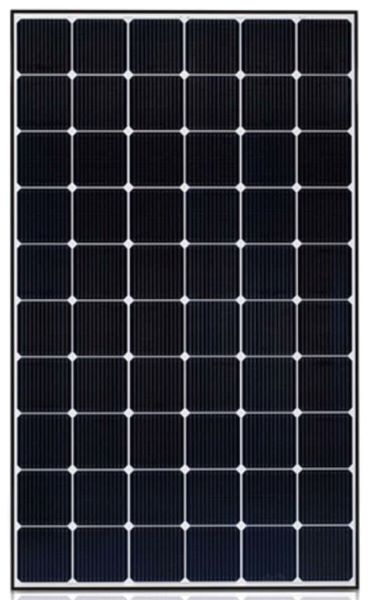
Best unit price
$323.39 ($0.97 per watt)
Best system price
Installed 5.0kW system
$12,691.01
($2.53 p/w)
LG335N1C-V5 overview
Rated power
335 watts
Efficiency
19.6
Number of Cells
60
Cell type
Monocrystalline/N-type
Manufactured
US
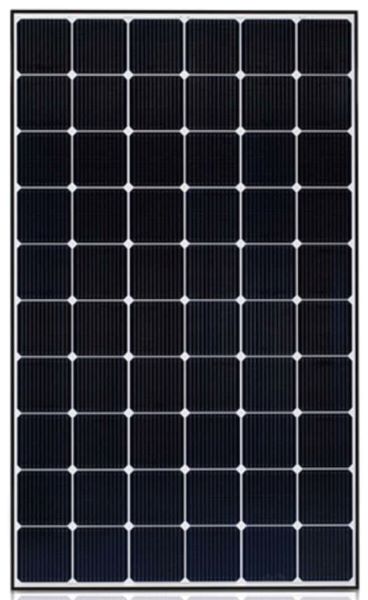
Best unit price
$338.19 ($0.99 per watt)
Best system price
Installed 5.1kW system
$0.00
($0.00 p/w)
LG340N1C-V5 overview
Rated power
340 watts
Efficiency
19.8
Number of Cells
60
Cell type
Monocrystalline/N-type
Manufactured
US
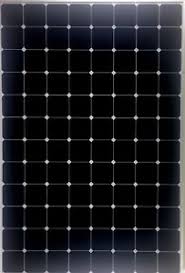
Best unit price
$600.00 ($1.83 per watt)
Best system price
Installed 4.9kW system
$12,808.41
($2.61 p/w)
SPR-E20-327-COM overview
Rated power
327 watts
Efficiency
20.4
Number of Cells
96
Cell type
Monocrystalline
Manufactured
US
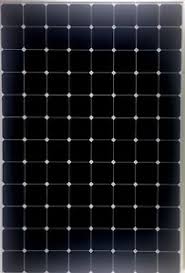
Best unit price
$800.00 ($2.22 per watt)
Best system price
Installed 5.0kW system
$13,201.67
($2.62 p/w)
SPR-X22-360 overview
Rated power
360 watts
Efficiency
22.2
Number of Cells
96
Cell type
Monocrystalline
Manufactured
US
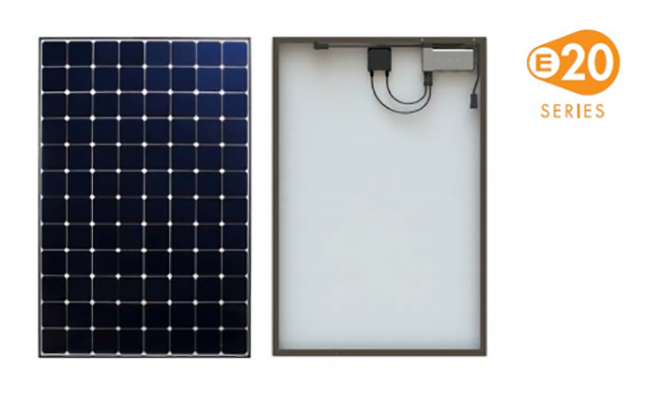
Best unit price
$620.00 ($1.90 per watt)
Best system price
Installed 4.9kW system
$13,703.10
($2.79 p/w)
SPR-E20-327-D-AC overview
Rated power
327 watts
Efficiency
20.4
Number of Cells
96
Cell type
Monocrystalline
Manufactured
US
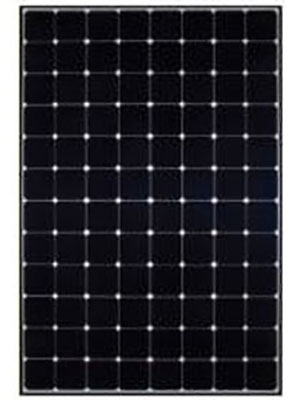
Best unit price
$620.00 ($1.90 per watt)
Best system price
Installed 4.9kW system
$13,610.59
($2.77 p/w)
SPR-E20-327 overview
Rated power
327 watts
Efficiency
20.4
Number of Cells
96
Cell type
Monocrystalline
Manufactured
US
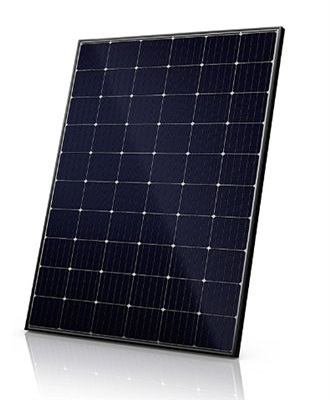
Best unit price
$181.00 ($0.60 per watt)
Best system price
Installed 5.1kW system
$11,003.04
($2.16 p/w)
CS6K-300MS overview
Rated power
300 watts
Efficiency
18.33
Number of Cells
60
Cell type
Monocrystalline
Manufactured
CA
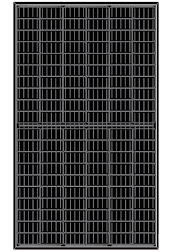
Best unit price
$196.11 ($0.65 per watt)
Best system price
Installed 5.1kW system
$9,948.02
($1.95 p/w)
LR6-60-HPB-300M overview
Rated power
300 watts
Efficiency
18.1
Number of Cells
120
Cell type
Mono PERC
Manufactured
CN
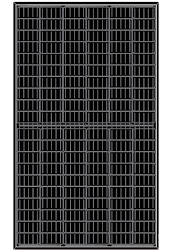
Best unit price
$172.00 ($0.56 per watt)
Best system price
Installed 4.9kW system
$9,568.53
($1.96 p/w)
LR6-60-HPB-305M overview
Rated power
305 watts
Efficiency
18.4
Number of Cells
120
Cell type
Mono PERC
Manufactured
CN
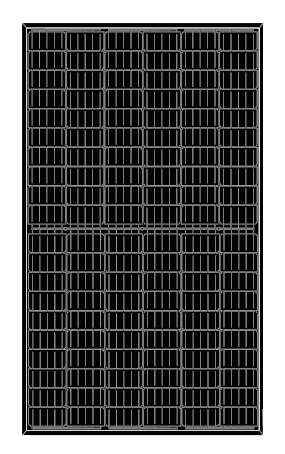
Best unit price
$165.00 ($0.53 per watt)
Best system price
Installed 5.0kW system
$9,761.72
($1.97 p/w)
LR6-60-HPB-310M overview
Rated power
310 watts
Efficiency
18.7
Number of Cells
120
Cell type
Mono PERC
Manufactured
CN
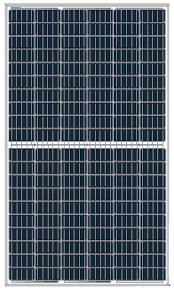
Best unit price
$228.00 ($0.60 per watt)
Best system price
Installed 4.9kW system
$9,579.65
($1.94 p/w)
LR4-60HPH-380M overview
Rated power
380 watts
Efficiency
20.9
Number of Cells
120
Cell type
Mono PERC
Manufactured
CN
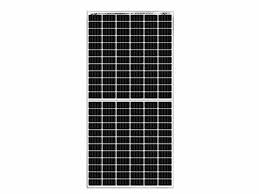
Best unit price
$234.00 ($0.60 per watt)
Best system price
Installed 5.1kW system
$10,126.74
($2.00 p/w)
LR6-72HBD-390M overview
Rated power
390 watts
Efficiency
19.4
Number of Cells
144
Cell type
Mono PERC
Manufactured
CN
Average cost of solar panel installation in Massachusetts by system size
System size* |
Cash purchase(After tax credit) |
Financed purchase(After tax credit) |
|---|---|---|
| 4kW | $12,572 | $13,452 |
| 5kW | $15,040 | $16,093 |
| 6kW | $17,238 | $18,445 |
| 7kW | $19,922 | $21,317 |
| 8kW | $23,200 | $24,824 |
| 9kW | $25,047 | $26,800 |
| 10kW | $27,560 | $29,489 |
Best solar companies in the main cities of Massachusetts
Home solar basics
Is it better to lease or buy solar panels in Massachusetts
You will save most money by buying your solar system rather than leasing it. Read more about the pros and cons of leasing vs buying solar.
How long do solar panels last?
Minimum of 25 years but generally 30 or more
How do solar panels work on a home?
Solar panels power your house when they can but your home uses the utility company for power at other times. In 2023 "solar systems with battery storage" are becoming more popular. These are known as hybrid systems.
How do solar panels work?
Grid-tied solar system
A grid-tied system is the most common type of solar system. It has no solar battery for backup power and utilizes net metering to maximize savings. Solar panels are mounted on your roof then wired together, and the power generated flows into an inverter where direct current (DC) electricity is converted into alternating current (AC) electricity. This electricity is either used by your home or is exported to the utility grid.
Hybrid solar system
In hybrid solar systems, rooftop solar panels are connected to both a solar battery and the electric grid. The solar electricity generated by your panels that your home does not use is stored in the battery instead of being sent to the grid, which reduces your reliance on the utility while also providing backup power when needed. Battery storage is still expensive but you may be able to reduce costs by using state incentives.
Off-grid solar system
Off-grid solar systems are not connected to the grid at all, so all of your energy needs must be met by the sun. There is no utility to fall back on. The solar installation needs to power your home not only during the day, but after dark as well, so many solar panels and a large battery system are required. These systems are often expensive and don’t make sense for homes that have access to the grid.
Read more about types of home solar systems.
Do solar panels require regular maintenance?
No, but cleaning them can improve power generation if they are dirty.
Will residential solar power system cost fall in Massachusetts in 2023?
Given this environment, and the effect of import tariffs placed on solar panels by the Trump administration during 2018, it is hard to see that solar power system prices in Massachusetts will fall during 2023.
How much electricity do solar panel systems generate in Massachusetts?
Depending on the location, solar panels will generate different amounts of electricity.
A solar system that is installed on a south-facing 27-degree pitch roof Massachusetts will generate 1,150kWh of peak DC (direct current) capacity per year per 1kW in the Boston area.
Enter your details into the solar panel calculator to see how your location, roof tilt, and roof direction impacts solar panel production.
What are the pros and cons of installing solar panels in Massachusetts?
Some of the advantages of installing solar panels in Massachusetts include state incentives, the federal tax credit, and the expensive power rates. Higher electricity rates give Bay Staters a great return on their investment in residential solar panels. It's no wonder Massachusetts is one of the best states in the nation to go solar!
What's the downside of installing solar panels in Massachusetts? There's not as much sun here as there is in other states. As a result, you need more solar panels on a roof in Massachusetts to produce the same amount of electricity as solar panels installed somewhere like Arizona. But, the state and federal solar incentives more than make up for this.
If you’re a Massachusetts homeowner, you’ll be kicking yourself that you didn’t install solar panels while these generous incentives were still around.
Enter your details to calculate the cost and savings you are likely to get from installing solar panels for your home.
What you can learn from our state solar panel calculator
This solar calculator requires you to input your address, utility company, your average monthly power spend - it tells you:
- What size solar system do you need?
- Answers the question of How many solar panels do I need?
- How many square feet of roof space you need for solar panels
- Solar electricity production in annual kWh (kilowatt-hours) you can expect from your solar system in Massachusetts
- The value of solar tax credits and other incentives you are entitled to based on the estimated size of system you need, your location and your utility provider.
- Likely cost based on an average of prices charged for solar systems of that size in the last year in Massachusetts or
- The likely payback period on your solar panels and your investment return.
- Your total lifetime solar savings based on each of the major solar finance options, a cash purchase, a cash purchase funded with a HELOC (home equity line of credit) and a zero-down PPA or third party lease product.
If you want to see all of the above but also see live pricing, the three best solar deals available in your city and get binding quotes from each of these solar companies then use this Massachusetts solar panels calculator. This calculator requires you to also input your name and contact details because most of our 200+ installer partners will only authorize the sharing of their live solar pricing where we have validated that you are a real homeowner with a home in their service area. We respect the privacy of your data and only share your contact details with the solar companies you ask us to get binding quotes from.
Note: Please keep in mind that the best source of up-to-date information on incentives are the solar installers who specialize in your area.

